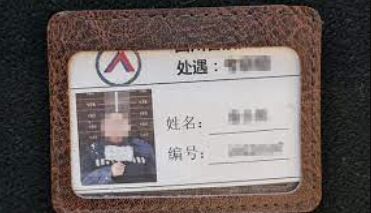Shocking Discovery: Chinese Prisoner's ID Card Found Sewn into Coat from British Brand Regatta
Chinese prisoner's ID card found in Regatta coat purchased during Black Friday sale, raising concerns about ethical practices in the fashion industry and consumer responsibility.
In a shocking discovery, a customer in Derbyshire found an ID card belonging to a Chinese prisoner inside a coat from the British brand Regatta. The waterproof women's coat was purchased during a Black Friday sale and arrived with a hard rectangular item in the sleeve that limited the customer's movement. After cutting into the coat, the woman found a prison identification card, complete with a mugshot of a man in a prisoner's uniform and the name of a Chinese prison. The customer contacted Regatta's customer service, who confirmed that the ID card was from their factory site in China but denied that it was a prison ID.
Despite feeling uneasy, the woman disposed of the card but later received an email from Regatta asking her to return the ID and coat. Several phone conversations followed, with Regatta offering to replace the coat and provide an additional one as a gesture of goodwill. The woman declined but retrieved the card from the bin. Regatta maintains that forced or imprisoned labor is prohibited in their supply chain and that they adhere to guidelines set by the Ethical Trading Initiative. They state that the incident appears to be an isolated one by a former employee and that no indicators of prison labor were found during their investigation.
The company is continuing to investigate how the ID card ended up sewn into the garment. The use of prison labor is widespread in China, with the country's prison law emphasizing the combination of punishment, rehabilitation, education, and labor for criminals. Chinese prisoners often earn a meager hourly wage, and handwritten notes from prisoners occasionally surface in consumer products, pleading for help and exposing their forced labor. While companies like Regatta have a responsibility to ensure their supply chains are free of human rights abuses, these incidents serve as a reminder of the need for greater transparency and oversight in the fashion industry.
Amnesty International emphasizes the risk that companies face by being associated with forced or compulsory labor and calls for increased efforts to prevent such abuses. As the investigation into this particular incident continues, it raises questions about the ethical practices of clothing manufacturers and the responsibility of consumers to make informed choices about the products they purchase. The discovery of the ID card serves as a powerful reminder that behind our everyday purchases, there may be human rights violations occurring.




